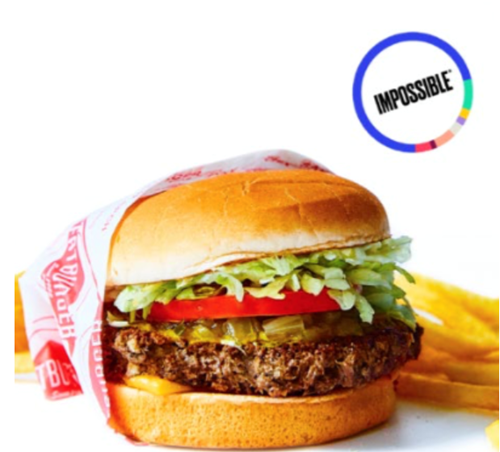


Meat made from plants that looks and tastes like the real thing is becoming increasingly common among environmental concerns raised by some intensive meat farming, but can it replace "traditional" burgers and sausages?
Considering the environmental impact of meat farming and with global demand for protein set to increase by 80% as soon as 2050, how do we feed the planet in a way that is sustainable?
That is where the idea of plant-based meat comes from. Producers and investors hope it will rival the taste, cost and convenience of conventional meat, while meeting climate targets.
However, these meat equivalents are not aimed at vegetarians and vegans only. There are high hopes they will appeal to hardened meat-eaters too.
There are two types of these new meat alternatives.
The first type is made from plant proteins - usually wheat, pea or potato, with natural colourings like beetroot juice. These are already available in restaurants, pubs and supermarkets, contributing to a growing market worth an estimated £4.6bn - according to the BBC and various sector reports.
The second type of meat alternative is known as “cultured” or “clean” meat, which is produced using animal stem cells grown in a lab, usually with the help of a growth-enhancing substance.
But getting these products on to our plates is not as straightforward as simply putting them into shops and restaurants. These products must undergo rigorous safety assessments before they can be sold. Authorities like the European Food Safety Authority, the Food and Drug Administration and the US Department of Agriculture in the USA regulate and decide if the product is safe to eat and how it should be labelled.
One thing that is certain is that our food processes and supply chains need to change and food procurement companies need to move with society, if we want to avoid causing irreparable damage to the planet.
While we are always looking at innovations which can improve every aspect of the supply chain and drive value for our partners, the most important thing to us is clear and transparent information on what we supply and where it has come from. This is always the first step towards assuring that meat procurement is reliable, responsible and gives you great quality meat.
If you would like to know more about our supply chain management and responsible sourcing, contact us here to start the conversation.
